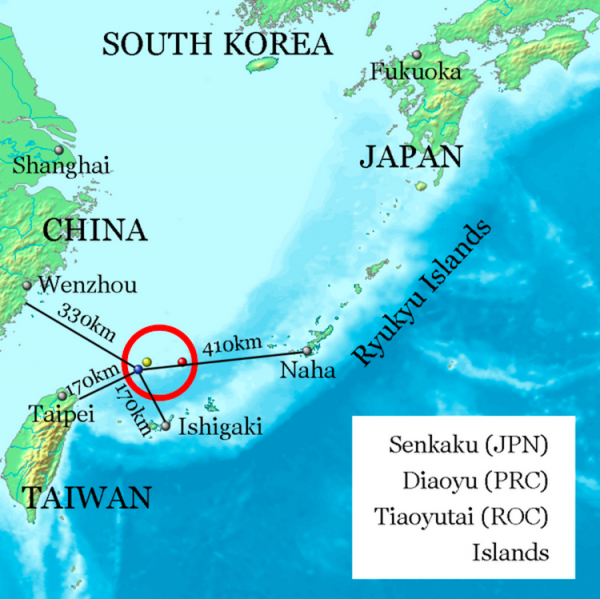UPDATE: I don’t seem to be the only one worried about a 1914 situation.
China’s current coercion of Japan over the islands is but a symptom of a larger illness in the international system. China has been leveraging its naval modernization to increase its movements through the seas and choke points surrounding Japan to break out into the Pacific. Last November, for example, flotillas of People’s Liberation Army (PLA) Navy destroyers and submarines backed by air power encircled Japan for the first time, as PLA officers bragged about splitting and demolishing the first island chain. China is changing the regional balance with little resistance from the United States. Counter to Chinese public claims of surprise at a U.S. “overreaction,” recent discussions with Chinese officials over Beijing’s December air defense identification zone announcement suggests that the United States’ response was much weaker than the response the Chinese leadership had expected.
This is worrisome.
Last month I posted an observation that another world war may be coming. I noted that this summer is the 100th anniversary of the First World War and that the present situation is similar to that which preceded the 1914 war. I may not be the only one.
I concluded last month’s post as follows: The “two Ps” are Pakistan and the Palestinians. We live in an incredibly dangerous era and we are seeing an American president who does not understand geopolitics. God help us.
A recent column provided from someone attending the Davos Economic Forum discusses yet another potential fuse that is sputtering.
During the dinner, the hosts passed a microphone around the table and asked guests to speak briefly about something that they thought would interest the group.
One of the guests, an influential Chinese professional, talked about the simmering conflict between China and Japan over a group of tiny islands in the Pacific.
